For marketers, juggling every stage of content creation while still keeping quality high can feel overwhelming and time-consuming. The challenge, of course, is choice: with hundreds of apps on the market, it’s hard to know which ones are actually worth your time and budget. In this guide, we’ll walk you through 7 of the best content marketing tools into two categories to fit your content marketing goals: Content Ideation & Keyword Research Tools and Management, Distribution & Design Tools.
Group 1: Content Ideation & Keyword Research Tools
1. Jasper AI – Content Creation & AI Writing Assistant

If you’ve ever opened a blank Google Doc and just… stared at it, Jasper turns ideas into a first draft in minutes.Jasper is one of the best content marketing tools, featuring an AI writing assistant designed specifically for marketers. You can create blog posts, landing page copy, social captions, and emails without staring at a cursor for hours. Instead of replacing your voice, Jasper gives you structured drafts and ideas that you can then refine.
Key Features:
- Turn a simple prompt into drafts for blogs, ads, emails, or social posts.
- Suggest SEO-friendly headlines and structure so your content is easier to rank.
- Learn and mimic your brand voice from sample texts you provide.
- Support writing in 30+ languages if you target multiple markets.
- Generate simple visuals with its built-in AI image tools.
Pricing: Click for more.
2. BuzzSumo – Topic Research & Content Planning
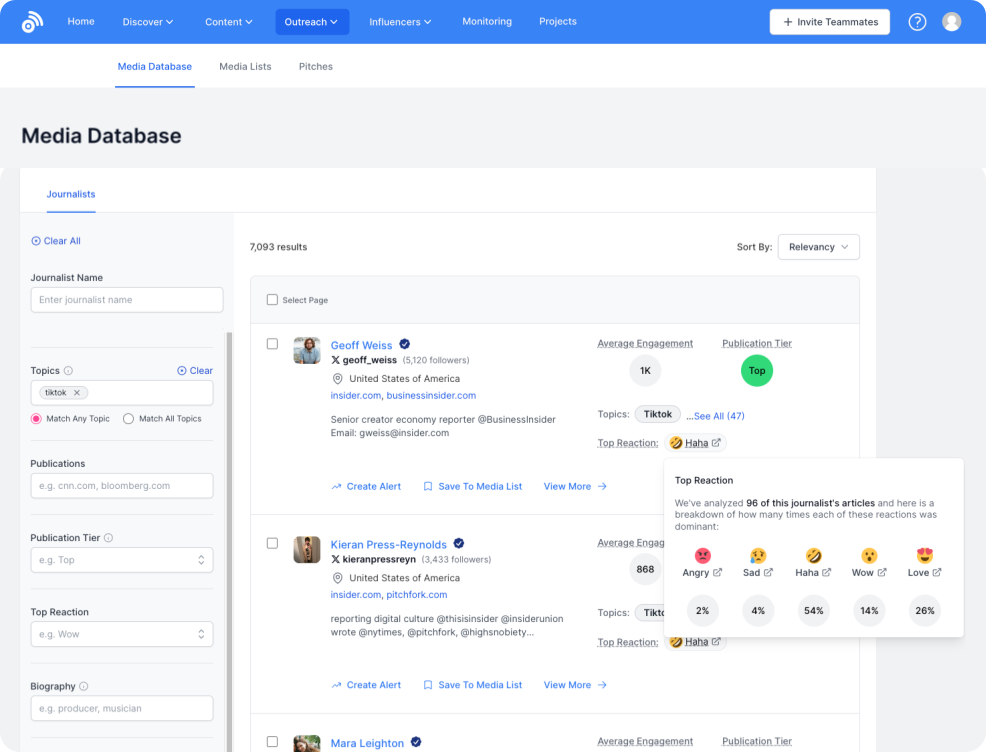
BuzzSumo is what you open before you start writing, when you want to be sure an idea is worth your time. Instead of staring at a blank content calendar, you can see exactly which topics, headlines, and formats are already getting clicks, shares, and buzz in your industry. You type in a keyword or a competitor’s website, and BuzzSumo shows you real examples of content that’s working right now, so your next idea is based on data, not guesswork. From topic research to brand monitoring, BuzzSumo is one of the best content marketing tools that’s packed with research features.
Key features:
- Search by topic or keyword to see the most popular articles and posts.
- Analyze competitors to find their best-performing content and content gaps.
- Spot trending topics early with filters by date, platform, and engagement.
- Set up email alerts for specific keywords, brands, or domains.
- Save favorite ideas and build simple topic lists for your content calendar.
Pricing: Click for more.
3. SEMRush – SEO & Keyword Research
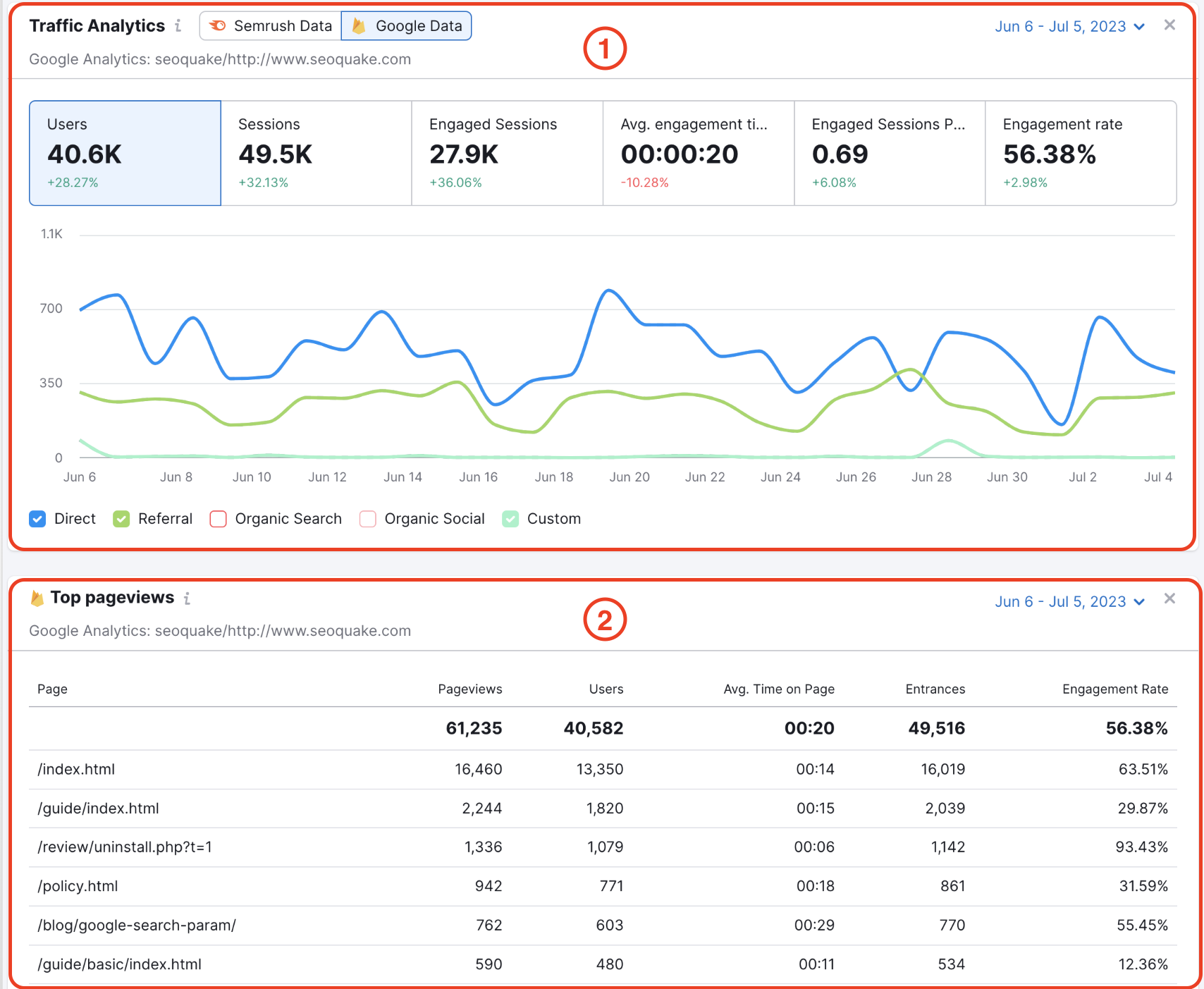
Among the top content marketing tools, SEMrush stands out for its SEO and market research capabilities, helping content teams boost organic traffic and enhance their visibility in search results. It delivers insights on keyword volume and difficulty, competitors’ rankings in search engines, and link-building opportunities. Instead of guessing which keywords to use, SEMRush shows you what people actually search for, how competitive those terms are, and what kind of content already ranks!
Key features:
- All-in-one toolkit that covers keyword research, site audits, backlinks, and more.
- Beginner-friendly keyword tools with search volume, difficulty, and intent data.
- Competitor analysis to see their top pages, keywords, and traffic sources.
- Technical and on-page SEO audits with clear, prioritized recommendations.
- Real-time reporting to monitor brand visibility, rankings, and content performance.
Pricing: Click for more.
Group 2: Management, Distribution & Design Tools
4. Google Analytics – Content Performance & Insights
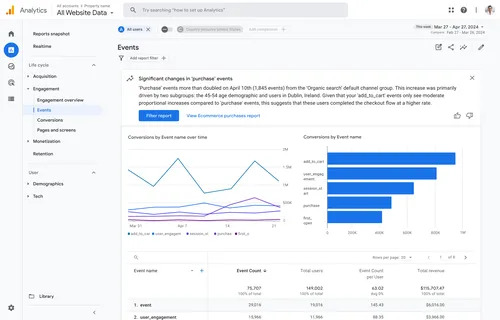
As one of the best content marketing tools for measurement, Google Analytics helps you see how your content truly performs. Instead of guessing which articles or pages are working, you can see real numbers: who visited, where they came from, what they looked at, and whether they took action (like signing up or buying). That turns your content from a “post and hope” game into something you can measure and steadily improve.
Key Features:
- Shows core metrics like sessions, page views, average session duration, and bounce rate.
- Tracks where visitors come from (search, social, ads, direct, referrals) and which locations they’re in.
- Measures conversion rates and lets you see which campaigns, pages, or channels drive results.
- Visualizes user behavior on site (paths, top landing pages, exit pages) to spot friction points.
- Uses machine learning to surface insights and predict likely actions, such as purchases or churn.
Pricing: Google Analytics is free.
5. Canva – Visual Content & Design
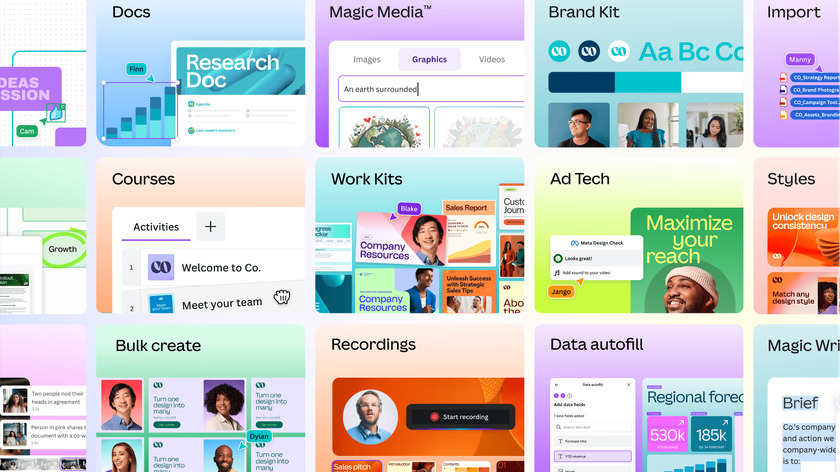
Canva is one of the best content marketing tools for quick, polished visuals. Canva makes it simple for anyone from non-creatives to specialists like marketers, founders,… to design clean, on-brand visuals. Just pick a template, drag and drop your content, adjust a few details, and download.
Key features:
- Huge library of ready-made templates for social posts, blog graphics, presentations, ads, and more.
- Brand Kit to save your logo, colors, and fonts so every design feels consistent.
- Drag-and-drop editor that lets you add text, icons, photos, and shapes in seconds.
- Easy collaboration in the browser—share designs, get comments, and update in real time.
- One-click resizing to repurpose a single design into multiple formats (e.g., Instagram post → Story → ad banner).
Pricing: Click for more.
6. HubSpot – Content Distribution & Marketing Automation
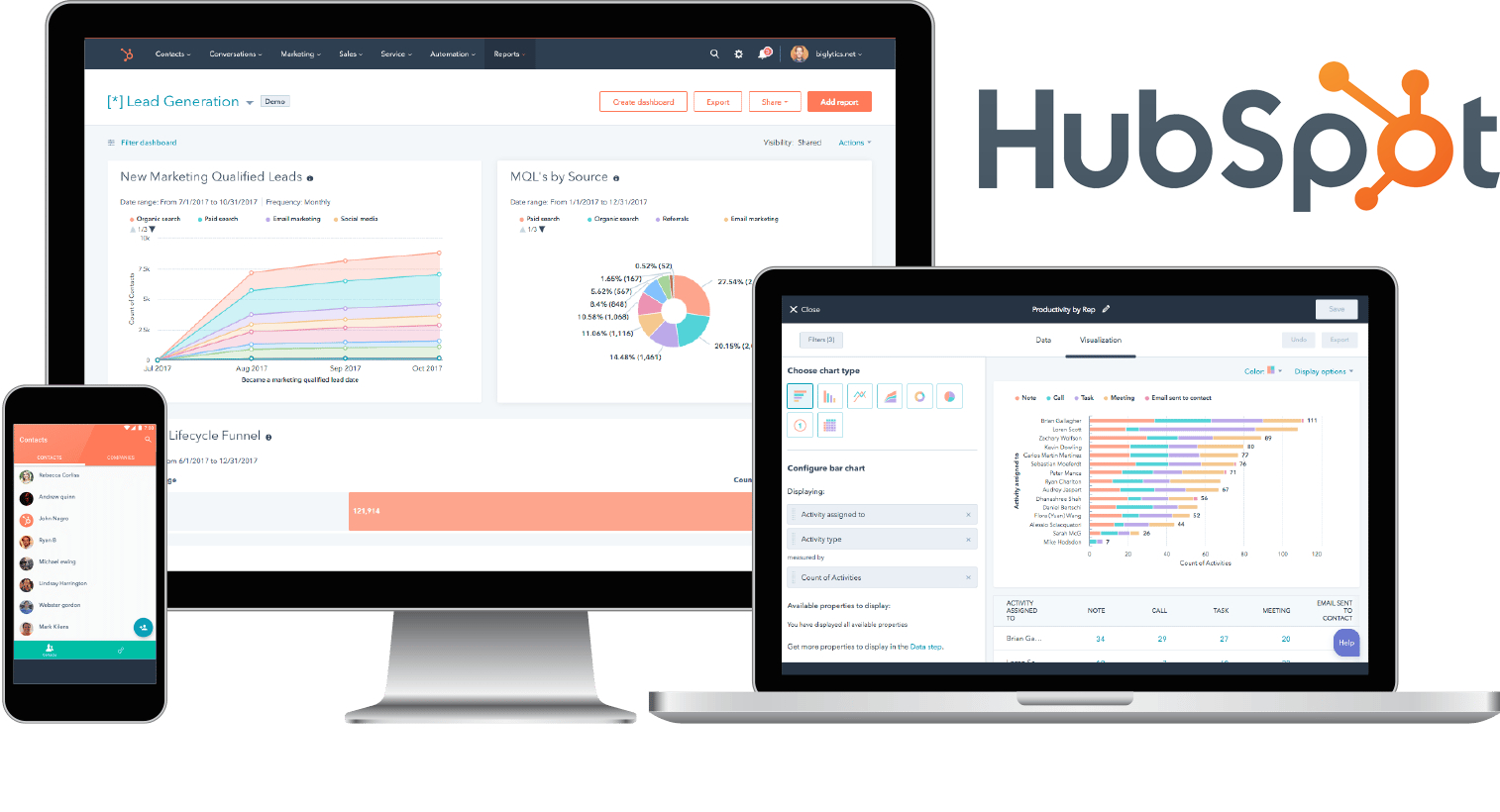
HubSpot is a CRM and marketing platform that helps you get your content in front of the right people and follow up automatically. With features such as email tracking and social media management, it allows marketers to automate their content marketing strategies. Over time, this end-to-end view of the journey is exactly what makes HubSpot stand out as one of the best content marketing tools for growing brands.
Key features:
- Create and send targeted email campaigns and automated nurture sequences based on user behavior.
- Schedule and publish social posts (LinkedIn, Facebook, etc.) from a single dashboard.
- Build landing pages and forms with drag-and-drop editors—no heavy dev work needed.
- Track how specific blogs, emails, and pages contribute to leads, opportunities, and sales in the CRM.
- Store and manage contact data so you can segment audiences and personalize content over time.
Pricing: Click for more.
7. Trello – Project & Workflow Management
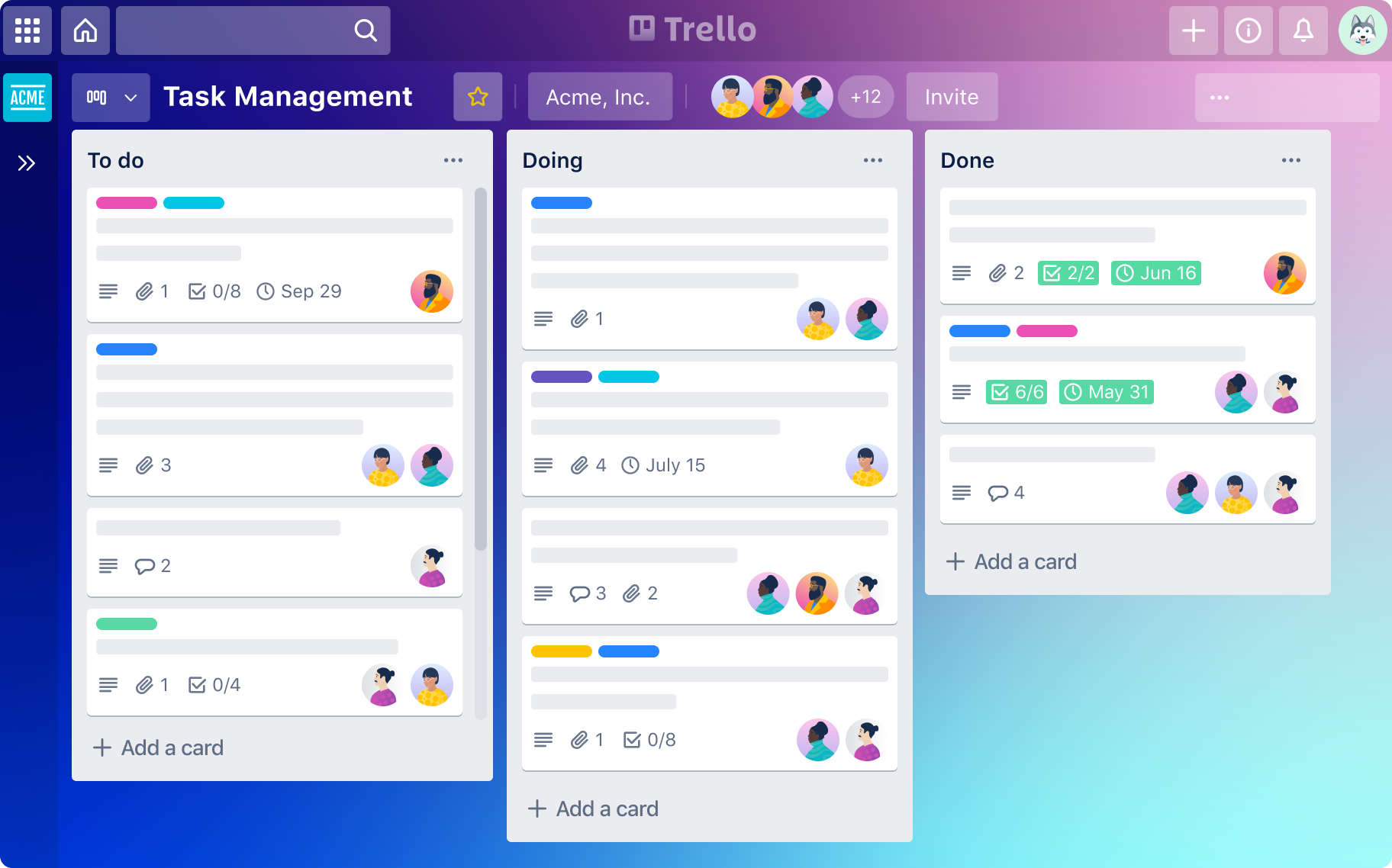
Trello simplifies collaboration within your team and has become one of the best content marketing tools for managing workflows. This project management tool enables you to break down large projects into smaller goals and track your progress. Instead of juggling ideas in spreadsheets, chats, and sticky notes, you organize everything on simple boards with columns like “Ideas,” “In Progress,” “In Review,” and “Published.” Each piece of content gets its own card, so you always know who’s doing what and what’s due next.
Key features:
- Visual boards and lists to map your content workflow from idea to publish.
- Cards for each blog, email, or campaign with checklists, due dates, and attachments.
- Easy drag-and-drop to move tasks between stages (e.g., Draft → Review → Done).
- Team collaboration with comments, mentions, and file sharing right on each card.
- Integrations with tools like Google Drive, Slack, and Calendar to keep everything in sync.
Pricing: Click for more.
Extended Insights: Using SearchPie To Turn Your Content Into Traffic
All the best content marketing tools help you plan, create, and ship great content. But there’s one crucial step left: making sure that content is actually findable on Google, especially if you’re running a Shopify store and don’t have time to handle all the technical SEO yourself. That’s where a dedicated content optimizer like SearchPie comes in.
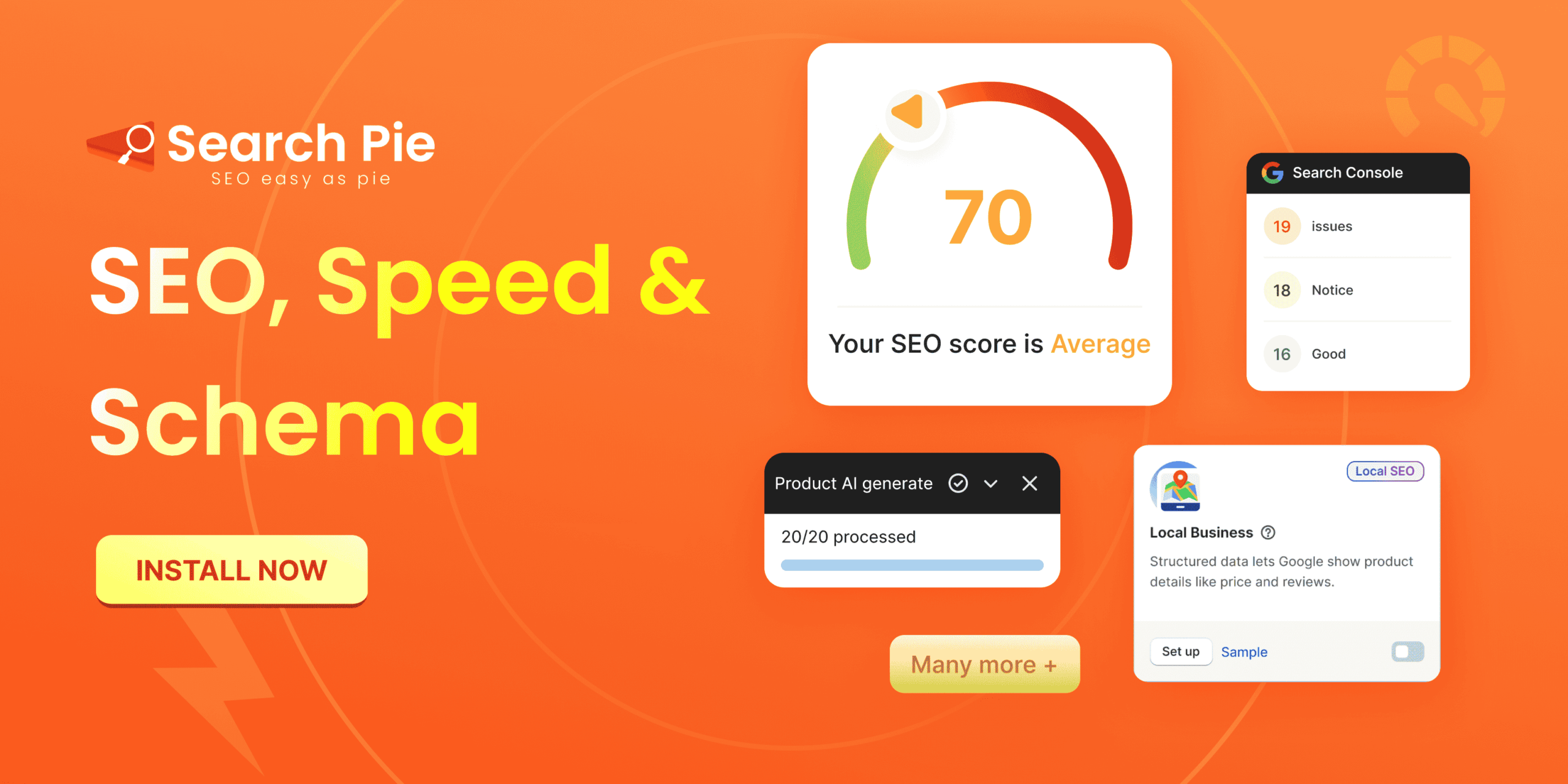
SearchPie supports Shopify merchants in two key ways: SEO tags & Content and Keyword Research. With SEO tags & Content, you can automatically generate and optimize meta titles, descriptions, and image alt text so your pages are clear, clickable, and search-friendly. On the keyword side, SearchPie helps you discover the right terms your customers are actually searching for, map them to your products, collections, and blogs, and track how those keywords perform over time. Together, these features turn your content from “just published” into content that’s truly optimized to get found and drive traffic.
Conclusion
Choosing the best content marketing tools isn’t about having the longest stack. Combine strategy, creation, design, distribution, analytics, and SEO into one simple workflow, then let tools handle the heavy lifting while you focus on your audience. Do that consistently and the best content marketing tools become a growth engine: better content, stronger rankings, and more customers.












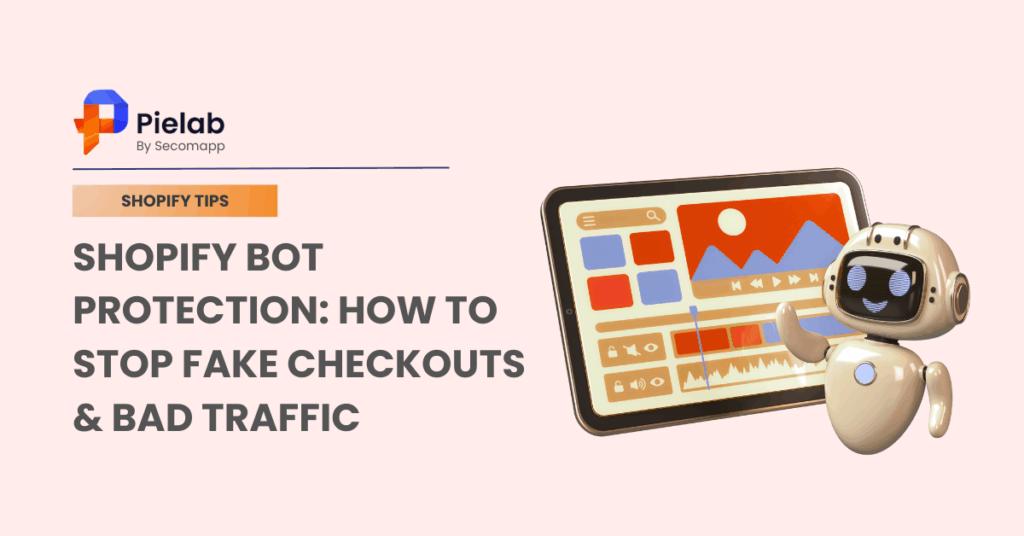


Pingback: Visual Workflow Tools That Help You Track Time Like You Track Expenses — Everything You Can Learn About Precious Metals